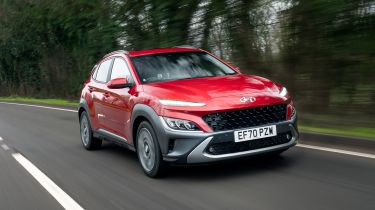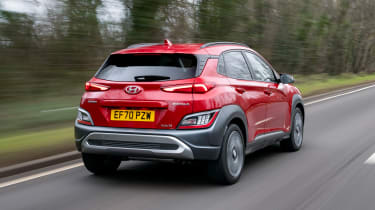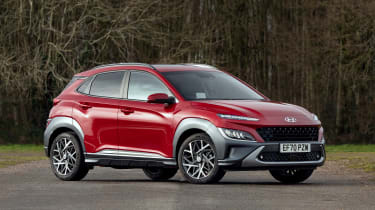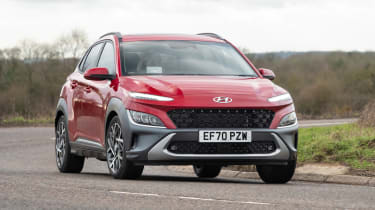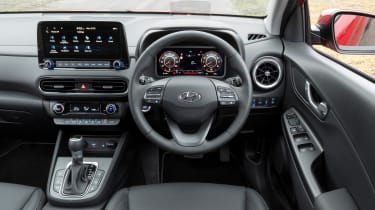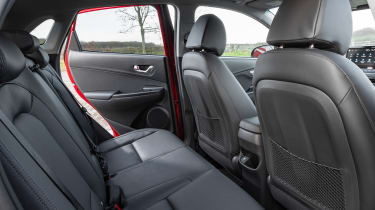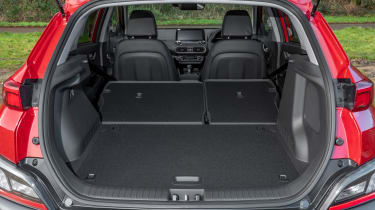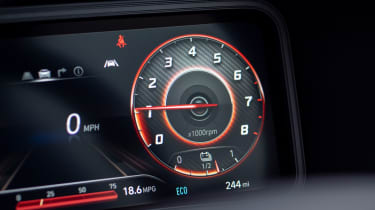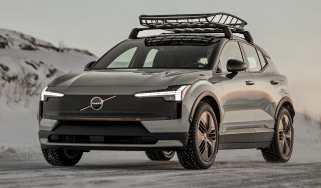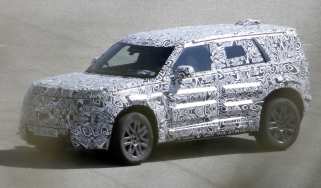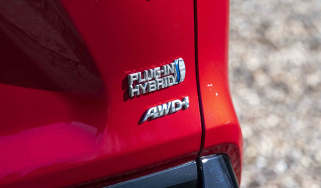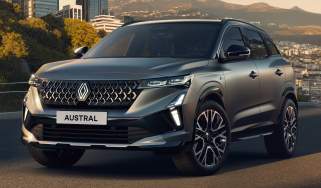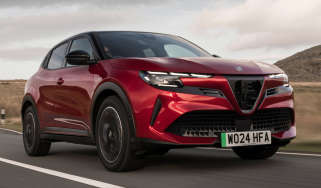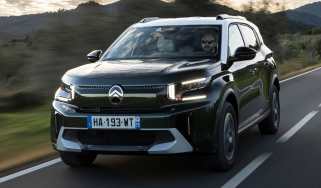Hyundai Kona Hybrid SUV review (2018-2023)
"Choose a Hyundai Kona Hybrid if you want to keep costs down but can’t charge an electric car at home"
Pros
- Cheap to run
- Plenty of equipment
- Clear infotainment setup
Cons
- Small boot
- Sluggish acceleration
- Optional safety features
Verdict - Is the Hyundai Kona Hybrid a good car?
The Kona Hybrid isn’t the most exciting choice or as cheap to run as the Kona Electric, but it has real appeal for people who just want something with low running costs, good reliability and a quiet driving experience. A key selling point could also be that the Kona topped the 2021 Driver Power customer satisfaction survey, and only dropped to fourth spot in 2022, showing that owners really love the car and are happy with the ownership experience.
Hyundai Kona models, specs and alternatives
The Hyundai Kona Hybrid is a small SUV that comes with an electric motor alongside its petrol engine, so while it doesn’t bring the full benefits of the Kona Electric, it’s actually the pick of the Kona range for most people. Certainly, if you can’t plug in at home then the Kona Hybrid could be the best version of the car for saving money on fuel and reducing your emissions. Before reading on, it is worth noting that the Kona is due for replacement during 2023, so you might want to hold on for the next-generation car. Alternatively, there should be some great deals on this Kona as it reaches the end of production.
The Kona Hybrid uses a typical hybrid car set-up: there’s a 1.6-litre petrol engine and a 43bhp electric motor, plus a relatively small 1.56kWh battery pack. Unlike many plug-in hybrids, the battery is only able to support a mile or so of electric driving, but it’s quickly recharged using the engine and regenerative braking. It automatically chooses when it’s best to use the electric motor to maximise efficiency, resulting in an impressive fuel economy figure of 57.6mpg and CO2 emissions from 112g/km.
 Top 10 best hybrid SUVs in 2025
Top 10 best hybrid SUVs in 2025
This low emissions figure means the Kona Hybrid has a lower rating for Benefit-in-Kind (BiK) than a petrol SEAT Arona or Citroen C3 Aircross. Other hybrid-powered rivals to consider include the Toyota C-HR, Kia Niro and Renault Captur E-Tech, along with the Kia Niro hybrid, which topped our Best Car awards 2023 and returns up to 59.8mpg.
More reviews
Even though it has a decent total output of 139bhp, the Kona Hybrid is a bit slow. 0-62mph takes over 11 seconds and the automatic gearbox is a little unresponsive, so it’s not much fun to drive. The Kona Hybrid works fine for sedate daily driving, especially in traffic, but it’s not as fun as a Ford Puma, for example. Older versions of the Kona Hybrid were a little firm over bumps but the latest version is improved in that area, so it’s comfortable and smooth for the most part.
The design of its unique alloy wheels and some blue badging is all that separates the Hybrid's looks from the rest of the Kona range, while the interior is available with white trim for the centre console and air vents. It's also fitted with an excellent 10.25-inch touchscreen infotainment system from the middle Premium trim, which is wide enough to display two sets of information at once. We'd be tempted to go for this above the entry-level SE Connect trim because it adds luxuries like heated seats, a premium Krell sound system and rear USB ports, along with 18-inch wheels.
MPG, running costs & CO2
Hyundai has quietly dropped the diesel version from the Kona range, so fuel-conscious buyers will be particularly interested in the Kona Hybrid. That's thanks to an economy figure of up to 57.6mpg, placing it a few rungs above the standard petrol models. It's not quite as clean as the Hyundai Kona Electric, of course, but that car is also quite a bit more expensive and has been tricky to get hold of due to long waiting lists.
CO2 emissions of around 112-115g/km also make the Kona Hybrid a desirable model for company-car drivers, with lower Benefit-in-Kind liability than most petrol rivals like the SEAT Arona. However, this figure is well above the threshold for free entry into most low emissions zones.
On our test drive, we managed to match the 56mpg figure on a variety of motorway and country roads, so urban driving with more electric-only running could produce even better numbers. At slow speeds, the 1.56kWh battery pack and electric motor can power the Kona for short distances of up to a mile or two. VED (road tax) will cost the discounted rate, but this is only a saving of £10 versus petrol and diesel models. Insurance groups eight to nine out of 50 should also make the Kona Hybrid cheap to cover for most drivers. Meanwhile, a five-year/unlimited-mileage warranty should ensure there aren't any unexpected repair bills.
Engines, drive & performance
With 139bhp and 265Nm of torque from its 1.6-litre petrol engine and electric motor, the Kona Hybrid looks reasonably powerful on paper. Despite this, it can feel somewhat sluggish, with bursts of acceleration met with a drone from the petrol engine as the dual-clutch gearbox shifts down to increase revs.
The Kona Hybrid's steering and suspension have been improved with the facelift, though, with revised settings that make it feel more natural and fluid to drive. It's now slightly softer, so less road imperfections are felt in the interior, without much of a trade-off for the handling.
When you aren't thinking about getting up to speed, the Kona Hybrid driving experience closely matches the petrol equivalents, sitting between the comfort-oriented Citroen C3 Aircross and the slightly sharper SEAT Arona. It's happiest when driven gently, as it’s very quiet and switches between electric and petrol power almost imperceptibly. Trying to coax the car to drive using just electric power can also prove quite satisfying.
Interior & comfort
The Kona Hybrid is closely based on the standard version, but there are some changes inside. White trim now surrounds the gear selector and air vents, but more significantly, Hyundai has updated the infotainment system. The brand's latest setup has a 10.25-inch touchscreen, serving up a wider aspect ratio that can show more information at once. A split-screen mode can simultaneously show your directions and media, for example, and the graphics and user interface are clear and logical. Every version now gets a digital instrument cluster as well. When the next Hyundai Kona arrives during 2023, however, it will get an even more cutting-edge infotainment setup and features.
Trim levels are SE Connect, Premium and Ultimate. Every version features a 10.25-inch instrument display, along with Android Auto and Apple CarPlay. There's also a rear-view camera, rear parking sensors, climate control and 16-inch alloy wheels. Hopping up to Premium brings 18-inch alloy wheels, a Krell premium sound system, BlueLink remote connectivity, heated seats and steering wheel, front parking sensors, keyless entry and wireless smartphone charging. The top Ultimate versions feature LED headlights, a head-up display, heated rear seats, ventilated front seats and advanced safety technology.
Practicality & boot space
The Hyundai Kona only takes up as much space on the road as a hatchback but a tall roofline means back seat passengers will be pleased with the headroom available. However, rear legroom is tight when the front seats are slid back to accommodate taller occupants. Top trims also get a central armrest for passengers, while cubby spaces include some storage around the centre console, cupholders, door bins that are on the small side and a decent glovebox.
The boot measures exactly the same 374 litres as non-hybrid versions, so it's commendable Hyundai has avoided impinging on the Kona’s practicality. With the 60:40 split-folding seats folded down, the boot increases in size to 1,156 litres. There are rivals with bigger boots, including the C3 Aircross with 410 litres. The hybrid Toyota C-HR offers 377 litres, while the Kia Niro manages an impressive 451 litres thanks to its boxy shape.
With a maximum towing capacity of 1,300kg (for a braked trailer), the Kona Hybrid becomes the most capable in the range for caravanners.
Reliability & safety
Hyundai has a great reputation for reliability, and its cars all come with a long five-year/unlimited mileage warranty. The pre-facelifed Hyundai Kona came fourth out of 75 models in our 2022 Driver Power survey, with impressive scores for reliability and build quality. The South Korean brand came 11th overall out of 29 manufacturers. It's also worth noting that Hyundai's hybrid powertrain has been tried and tested in the Hyundai Ioniq.
Euro NCAP has already awarded the Kona a five-star safety rating following extensive crash testing. It comes fitted with lane-keeping assist and a driver attention alert, but it's a shame it’s not fitted to entry-level cars. It becomes standard for the Premium SE trim, along with blind spot warnings and rear cross-traffic alerts. The Ultimate trim gets another raft of advanced safety kit, including a head-up display and a system that warns passengers of approaching traffic as they exit.
Which Is Best?
Cheapest
- Name1.0T Advance 5dr
- Gearbox typeManual
- RRP£26,465
Most Economical
- Name1.6 GDi Hybrid Advance 5dr DCT
- Gearbox typeAuto
- RRP£30,685
Fastest
- Name1.6T N Line S 5dr DCT
- Gearbox typeAuto
- RRP£34,265

